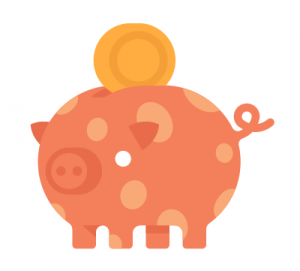Braving the Storm: Going Freelance
Rebecca, a freelance writer explains why now could be a great time to start freelancing. She shares tips on how to set up your venture, whether you want to launch an exciting new career or kickstart your passion project.
Going freelance during the COVID-19 pandemic isn’t for the faint-hearted. With a struggling economy and a surge in job hunters, going freelance is likely to be more competitive than ever before. But, it’s not all bad news. Many companies are looking to downsize their internal team and outsource their talent to cut down their expenses, which means that there is an increased demand for freelance talent. With a little know-how, you can utilise this new era to kickstart a new career or passion project.

Embrace the fear
Starting up as a freelancer, especially during a global pandemic, can feel scary. The good news is that the fear you’re feeling is completely natural, and we are all currently concerned about what the future holds. To be successful as a freelancer, you need to embrace this fear and make it your driving fuel.
Wondering how you’re going to pay that big bill at the end of the month? Best start reaching out to potential clients. Concerned that your savings are slowly dwindling? Time to perfect your portfolio. Starting to feel aimless or lost? Dive into your passion project and use it to fill your days and keep your brain engaged.
Readjusting your mindset will be half the battle in the early days of your new freelance adventure. If you did lose your job, stop thinking of this as something you’ve been pushed into, but that you’ve simply gained an opportunity to do something you might not otherwise have been brave enough to try. If you are still working, see this as an opportunity to explore your interests, hone your skills and make yourself a better employee in the future. Who knows, you may find yourself not wanting to return to your old life after all…
Do your research
Sit down and think about the kind of services you can offer, what experience you have and what makes you different (your USP: Unique Selling Point). Create a list, then enter those points into Google and you’re probably confronted with millions of results from freelancers offering a service remarkably similar to yours. But don’t be disheartened; you can use this information to dig a little deeper into your new industry. Who stands out and why? Who’s working with clients that you’re aiming for? Who’s charging good money and how does your profile stand up against theirs? A little research will help you to carve out your own niche in the market.
Explore freelancing websites such as Upwork or Fiverr or Freelancer to scout out which clients are hiring, what the project looks like and how much they’re willing to pay for the work. Use this information to set your price point and establish how many projects you need to work a month to reach your financial goals. Many freelancers fail in the first few months by allowing themselves to be negotiated down to an unfeasible price point. Avoid this at all costs. Don’t give into the fear and take on an ungodly amount of work for a pittance just to have something. You’ll wear yourself out far too quickly without making enough money to survive.

Sort your portfolio
Create or spruce up your portfolio. Instagram is a great platform to display your portfolio online and is widely used by people searching for creative talent.
If you don’t have any previous work examples for a portfolio, you can be a little creative. Write a fictional brief and work as if it were a real client, showing your work process and how you achieved the goals. If you decide to create a fictional client base to build up your portfolio, ensure you disclose this. Don’t lie to prospective clients as it could backfire hugely at some point.

Get your finances in order
Once you’ve done your research, identified your market and created your portfolio, you’re almost ready to embark on your freelance adventures. The final considerations you need to make are financial: what income do you need to make ends meet? What types of payment are you going to accept? How are you going to manage your VAT and taxes? Do you need an accountant or are you going to manage your accounts yourself?
If you are unemployed and on benefits, you need to disclose your earnings to the relevant authority. If you are employed and this will be a secondary income, you need to ensure that your earnings are declared and your tax code is adjusted. It is advisable to open a separate business account so you can track your income accurately. Make sure you keep on top of your financial responsibilities and get professional advice where necessary.
Find out more tax information for freelancers here.
Building on success
Once you’ve got the basics in order you can start to build out your portfolio and get some great clients onboard. Don’t underestimate the power of networking and social media. LinkedIn, in particular, is an invaluable tool for professionals. Whether it’s posting content, displaying your work or pitching to potential clients, use this platform as the base of your networking efforts.
Also ensure that you have a solid marketing plan too. Whether it’s using other social media platforms, creating a website with an email marketing campaign or using a paid marketing service to promote your services, the key to a successful freelancing career is getting your name out there. You won’t be able to attract clients if they don’t know you exist.
Get going and start your new venture. Good luck!
Find out more about freelance life
Self-employment
Find out more about freelancing & whether self-employment is the right path for you. Plus plenty of tips, tools & useful resources
Looking for freelance work? Take a look at our suggestions of the best places to find it
Asking for Money as a New Freelancer or New Business
Tips from a freelance videographer on developing a pricing strategy
Why I Chose the Life of a Freelancer…
A creative tells his story, from a permanent design job to freelance photography and video editing
About the author
Rebecca Clarke is a UK-based freelance writer and proud Hufflepuff. Her articles range from topics about mental health and relationships to freelancing and being your own boss. When she is not writing, she is usually watching true crime documentaries with her cat, Oliver.
